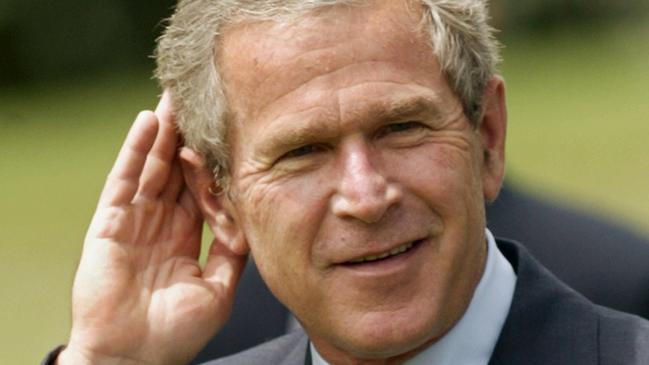Threat to White House’s war powers
Twenty years after the US congress voted to give George W. Bush the authority to invade Iraq, members are preparing a vote to remove those war powers from the White House.

Twenty years after the House and Senate voted to give president George W. Bush the authority to invade Iraq, members of congress are preparing a vote to remove those war powers from the White House.
On the 20th anniversary of the US-led invasion, many in congress have called for the repeal of the powers granted to Mr Bush in October 2002, along with the authorisation given to his father, president George HW Bush, before the 1991 Gulf War.
A bipartisan bill to revoke the Authorisation for Use of Military Force (AUMF) is expected to pass the Senate this week, after 19 Republicans joined Democrats to support opening a debate on the legislation last week.
“Americans are tired of endless wars in the Middle East. Every year we keep these AUMFs on the books is another chance for future administrations to abuse them,” the Democratic Senate Majority Leader, Chuck Schumer, said last week.
Supporters of the move argue that the authorisation has been stretched beyond its original purpose by the White House. It was cited under the presidencies of Mr Bush, Barack Obama and Donald Trump to launch military action against al-Qa’ida, Islamic State and other militant groups.
Republican Senate leader Mitch McConnell criticised the move, saying that it weakened the authority that supports US military operations abroad.
Other Republican opponents warned that it could be seen as a signal of America’s retreat from the world, particularly in light of the chaotic and humiliating withdrawal from Afghanistan in 2021.
“At a time when people are wondering whether they can depend on the United States, I think that sends a wrong message,” senator John Cornyn of Texas told The Wall Street Journal.
The Republicans are much changed from the party that championed aggressive military intervention overseas in the wake of 9/11, however. Many Republicans in congress now support Donald Trump’s isolationist “America first” policy of limiting military operations overseas. The party is increasingly divided on foreign policy, including in its backing for President Joe Biden’s military and financial support for Ukraine against the Russian invasion.
As he attempts to take back the White House next year, Mr Trump has lashed out at the neo-conservative movement that dominated the Republican Party under Mr Bush.
In a video last week the former president again attacked Mr Biden’s support for Ukraine and the “globalist neo-con establishment” in both parties that he said was “perpetually dragging us into endless wars”.
The Times



To join the conversation, please log in. Don't have an account? Register
Join the conversation, you are commenting as Logout